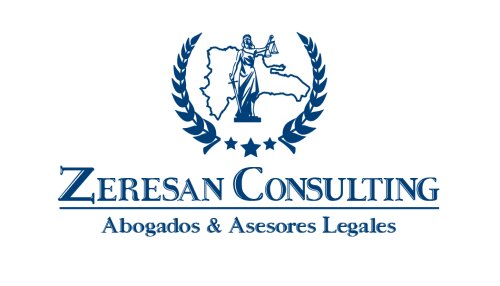Best Divorce & Separation Lawyers in Santo Domingo Este
Share your needs with us, get contacted by law firms.
Free. Takes 2 min.
Free Guide to Hiring a Family Lawyer
List of the best lawyers in Santo Domingo Este, Dominican Republic
About Divorce & Separation Law in Santo Domingo Este, Dominican Republic
Divorce and separation laws in Santo Domingo Este, part of the Dominican Republic, are governed by a blend of local statutes and cultural norms. The family court system oversees the legal dissolution of marriage, which includes divorce and judicial separation. The process can involve various matters such as asset distribution, alimony, child custody, and support. In the Dominican Republic, there are several types of divorce proceedings, from mutual consent to contentious divorce, each with specific legal requirements and procedures.
Why You May Need a Lawyer
Seeking legal advice is often crucial in divorce and separation cases for several reasons. Firstly, navigating the legal system can be complex, and a lawyer can offer guidance to ensure compliance with applicable laws. Common situations requiring legal assistance include disputes involving child custody and support arrangements, division of property and assets, and issues surrounding alimony. Additionally, legal representation is vital in contentious divorces to protect one's rights and interests. A lawyer can also aid in negotiating settlements and representing parties in court.
Local Laws Overview
The legal framework for divorce in Santo Domingo Este is primarily codified under the Dominican Civil Code and laws specific to family matters. Some relevant legal points include:
- Types of Divorce: The Dominican Republic recognizes different types of divorce, including mutual consent and divorce for specific grounds such as incompatibility or desertion.
- Residency Requirement: At least one party must have resided in the Dominican Republic for a specified period before filing for divorce.
- Child Custody and Support: The best interests of the child take precedence in custody decisions. Both parents may be obligated to contribute to child support based on their financial capabilities.
- Asset Distribution: Typically, marital assets are divided equitably, and a lawyer can ensure a fair distribution according to local laws.
Frequently Asked Questions
What are the grounds for divorce in Santo Domingo Este?
Divorce can be granted for several reasons including mutual consent, incompatibility, adultery, abuse, desertion, and other specific grounds outlined in the law.
How long does it take to get a divorce?
The duration varies depending on the type of divorce. Mutual consent divorces are generally quicker, potentially finalizing within a few months, while contentious cases may take longer.
Can foreigners get divorced in the Dominican Republic?
Yes, foreigners can get legally divorced in the Dominican Republic provided they meet the residency or jurisdictional requirements stipulated by law.
How is child custody determined?
Child custody is determined based on the best interests of the child, considering factors such as parental stability, the child’s relationship with each parent, and living conditions.
What is the process for property division?
Property acquired during the marriage is subject to equitable division upon divorce. Negotiations or court directives determine how assets are divided.
Is alimony mandatory?
Alimony is not automatically awarded and depends on various factors including the duration of the marriage, financial status of each party, and any agreements or court orders.
Can separation lead to reconciliation?
Yes, legal separation allows couples the opportunity to reconcile without dissolving the marriage, but legal steps must be taken to amend any court orders.
What legal documents are necessary for divorce proceedings?
Documents typically include marriage certificates, identification, financial disclosures, and any agreements related to assets, custody, or support.
How can mediation assist in divorce cases?
Mediation can provide a platform for amicable negotiation and conflict resolution, often reducing the time and cost involved compared to court proceedings.
Are there any alternatives to going to court?
Yes, divorce by mutual consent often involves less court intervention, and mediation or arbitration can provide alternative dispute resolution methods.
Additional Resources
For those seeking further assistance, several resources are available:
- Government Legal Aid Services: Providing free legal assistance to those who qualify.
- Family Courts: Offer guidance and process filings related to divorce and separation matters.
- Private Legal Practitioners: Numerous law firms in Santo Domingo Este specialize in family law.
- Non-Governmental Organizations: Such as women's rights organizations, offering support and guidance in domestic matters.
Next Steps
If you find yourself in need of legal assistance regarding divorce or separation, here are some steps to consider:
- Consult a Lawyer: Seek advice from a qualified family law attorney to understand your rights and options.
- Gather Documentation: Compile all necessary documentation related to your marital assets, income, debts, and any existing agreements.
- Consider Mediation: Explore the possibility of resolving issues amicably through mediation before heading to court.
- Attend Counseling: If appropriate, consider individual or couples counseling to address personal and relational challenges.
- File Petitions: With legal guidance, submit the necessary petitions and documentation to initiate the legal process.
Taking informed steps can significantly ease the transition and protect your rights during this life-changing process.
Lawzana helps you find the best lawyers and law firms in Santo Domingo Este through a curated and pre-screened list of qualified legal professionals. Our platform offers rankings and detailed profiles of attorneys and law firms, allowing you to compare based on practice areas, including Divorce & Separation, experience, and client feedback.
Each profile includes a description of the firm's areas of practice, client reviews, team members and partners, year of establishment, spoken languages, office locations, contact information, social media presence, and any published articles or resources. Most firms on our platform speak English and are experienced in both local and international legal matters.
Get a quote from top-rated law firms in Santo Domingo Este, Dominican Republic — quickly, securely, and without unnecessary hassle.
Disclaimer:
The information provided on this page is for general informational purposes only and does not constitute legal advice. While we strive to ensure the accuracy and relevance of the content, legal information may change over time, and interpretations of the law can vary. You should always consult with a qualified legal professional for advice specific to your situation.
We disclaim all liability for actions taken or not taken based on the content of this page. If you believe any information is incorrect or outdated, please contact us, and we will review and update it where appropriate.










